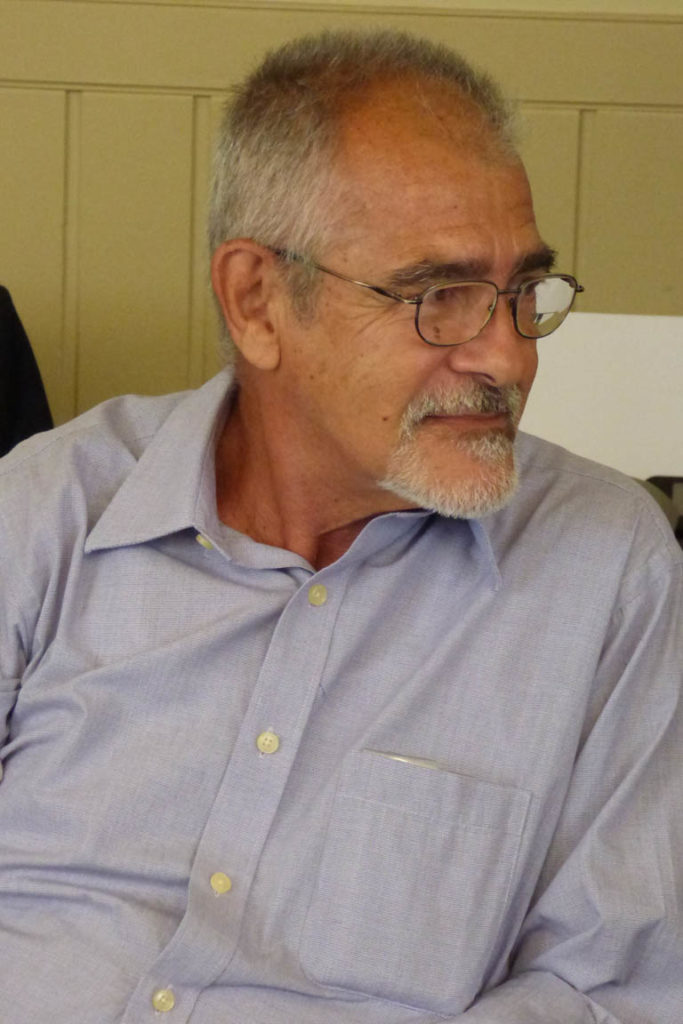
Rafael León Rodríguez, (El candil de Rafa), Panama City/Cuba, 10 June 2019.The members of the Coalition for Democratic Unity (Muad), who met in Panama City 3rd and 4th of June, 2019 in the 2019 Strategy Workshop, along with our colleagues from the island of Cuba, who were hindered from going there by the government, agreed the following:
The rise to political power in Cuba of Miguel Diaz-Canel Bermudez and the taking effect of a new constitution, not only have implied no change in the political and economic conditions in the country, but have also exacerbated the lack of political representation in the government organs and the precarious material and spiritual state of the nation.
Muad, since its creation in 2015, has offered its meetings to help overcome the decades-long climate of confrontation and hostility in Cuba, and nothing has been achieved since then.
Our objective is to help bring about a nation which respects democracy and the rule of law, but not as a result of the victory of one player over the other, but rather the triumph of everybody over idleness, irresponsibility, and neglect. A change that every individual can feel they have contributed to.
Our fundamental liberties continue to be violated by our own constitution, and the laws which derive from it. They continue to use the rhetoric of “enemy” as their way of remaining in ignorance about their opposition. They stigmatise those who emigrate, who are a mixed population, but remain always Cubans, and lock up anybody who thinks differently. They insult those who work, and, even worse, those who manage, through their work, to free themselves from poverty and necessity.
These conditions don’t help the country or offer any hope. Even less when they are accompanied by the excessive economic power of the military organisations, determined to build gigantic luxury hotels using foreign companies and workers, putting into practice generous policies to attract foreign capital, offering nothing to any corresponding national entities.
Faced with the overriding need for “enemies”, we Cubans find we have been classified as such by the state, which is supposed to be our support. It’s an anomalous situation which views all good deeds with suspicion
Muad rejects the treatment recently handed out to our fellow-countrymen who tried to help the victims of the tornado, which hit some of the poorest areas of Havana last January 27th.
We also reject the repression which ended the march against homophobia last May 11th, and showed the image of a country which persecutes what in the rest of the world would be seen as a party. And we reject the silence of the state in the face of femicide, and crimes related to sexual, or racial discrimination, or anything else which damages human dignity.
We appreciate the facility of getting internet and social media access in the island. This novelty has shown that Cuban civil society is a reality, as initiatives which were up to recently difficult to deal with have acquired the ability to let people know about stuff which was previously unknown.
People have been mobilised to help victims, defend more humane treatment for animals, fight against homophobia, denounce state decrees blocking artistic liberty, and reduce the price of the so-called network of networks, just to give a few examples.
In the same way it was possible to mobilise a No vote before the constitutional referendum last February 24th. The campaign in support of it, organised by the Cuban government, monopolising the communication media and sanctioning any public protest against the proposed text, found itself up against a public argument mobilised by the social media. The partiality in the communication media, and the mobilisation of public opinion, put into doubt the approval sought.
As a result of the new constitutional text, the country will prepare a new electoral law. Muad urges the Cuban state to draft it so as to be a model which permits effective citizen participation in the process of electing political representatives, respecting freedom of association and movement irrespective of ideological preferences.
We call on the Cuban government to free up a space for participation, so that the growing movement does not hit a brick wall of repression and insult, which is what happened with help for the victims of the tornado in the days following January 27th, and with those who protested against homophobia last May 11th.
Right now we are seeing a growing distance between the governments of Cuba and the US. Our neighbour’s regime of sanctions against Cuba has been re-energised, with unexpected consequences.
Muad considers that our vulnerability to these actions by the United States are due to the country’s inability to produce food, and generate productive and financial resources which could make us independent of the actions of other countries. The signatories to this Declaration once again urge the Cuban government to free up the obstacles holding back our productive capacity and our agriculture and high added value services.
Muad supports the fighters for democracy in Venezuela and Nicaragua, and wants all illegitimate governments to be replaced by democratic regimes. Because of our movement for democracy in Cuba, we know the cost and pain suffered by both peoples.
Political repression is, in Muad’s view, the most troublesome and unacceptable part of the authoritarian practices of the Cuban government. The maintenance of a one-party system in the new constitutional text renders ineffective the proscription of discrimination in that same text. We specifically reject the existence of political prisoners and the criminalisation of the children, spouses, brothers and sisters of members of the opposition, as a way of discouraging their fight.
Freedom is freedom – and that’s it. Without it, there is infinite pain. Time to put an end to this nonsense.
Panama City/Cuba, June 10th, 2019.
Translated by GH
